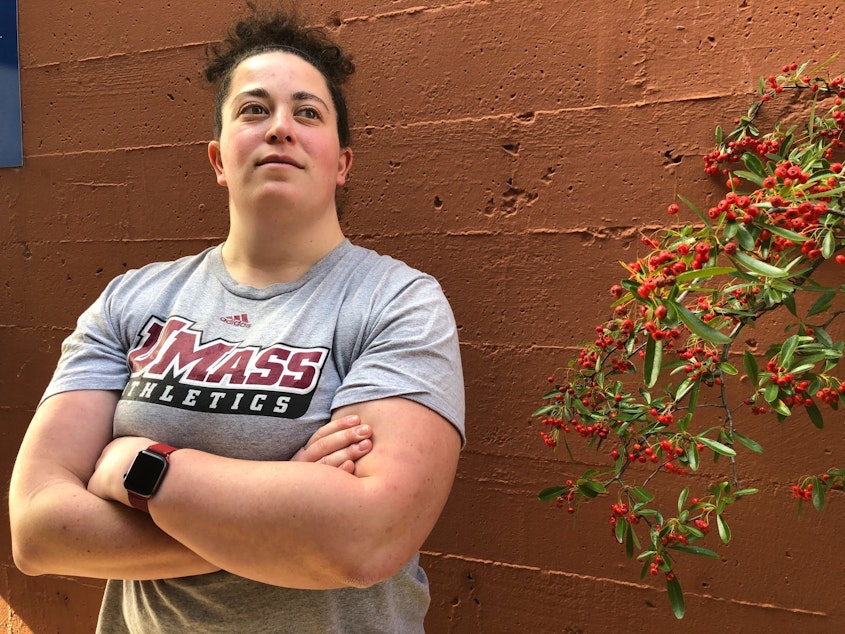The pros and cons of tracking college athletes' health

In professional sports, some coaches are using wearable fitness tracking devices to monitor the health of all their players -- all the time.
Now, some college coaches want to track college athletes the same way. Researchers at the University of Washington have published a study looking into the implications.
They can see how you've been sleeping, how many steps you've taken, and how hard you've pushed yourself. Wearable fitness tracking devices, such as the Fitbit, give users an extraordinary amount of data.
Some college coaches and their staff of training specialists would like access to that rich source of data, University of Washington researcher Samantha Kolovson has found. She said data from wearables is much better than what coaches get by leaning against a locker and asking an athlete "How'd you sleep last night?"
Kolovson said those sorts of informal locker room conversations help coaches estimate a team's overall health, which informs gut decisions they make to increase the team's chance of winning. But with so many fitness trackers out there now, coaches see an opportunity to make more decisions based on data.
Student athletes are prone to present themselves to coaches and trainers in ways that aren't entirely accurate, Kolovson said. After all, student athletes in particular balance several different identities at once. They're athletes, but they're also scholars and they're social. Sometimes, students value partying more than the good night's sleep required to play at their best.
Giving coaches and trainers direct access to an athlete's sleep patterns, step count, heart rate and other measurements can be helpful, for example, when an athlete's recovering from an injury, Kolovson said. A trainer can prescribe a precise number of steps to put on an injured ankle. That's better than prescribing a 10 minute workout and hoping they don't work the ankle too hard.
Sponsored
But allowing a coach to peer directly into an athlete's heart and see how fast it's beating can feel like an invasion of privacy. That's what Kolovson heard from one rowing athlete.
“And if she was to push harder and try to get her heart rate up, she’d start to sort of 'row crappy,' which means your technique falls apart,” Kolovson said. “She wanted there to be that trust there, that she's doing her best.”
Kolovson's research team explored power imbalances created when coaches and trainers get access to that kind of data. She said college athletes deserve protection, because in some cases they may not feel they have a choice in sharing data coaches want.
As wearable fitness trackers enter college sports, Kolovson said it'd be good to set some expectations. Those could include letting athletes have more say over how their data is used. And she said coaches should go over data together with the athletes, rather than privately using it to make opaque decisions.

